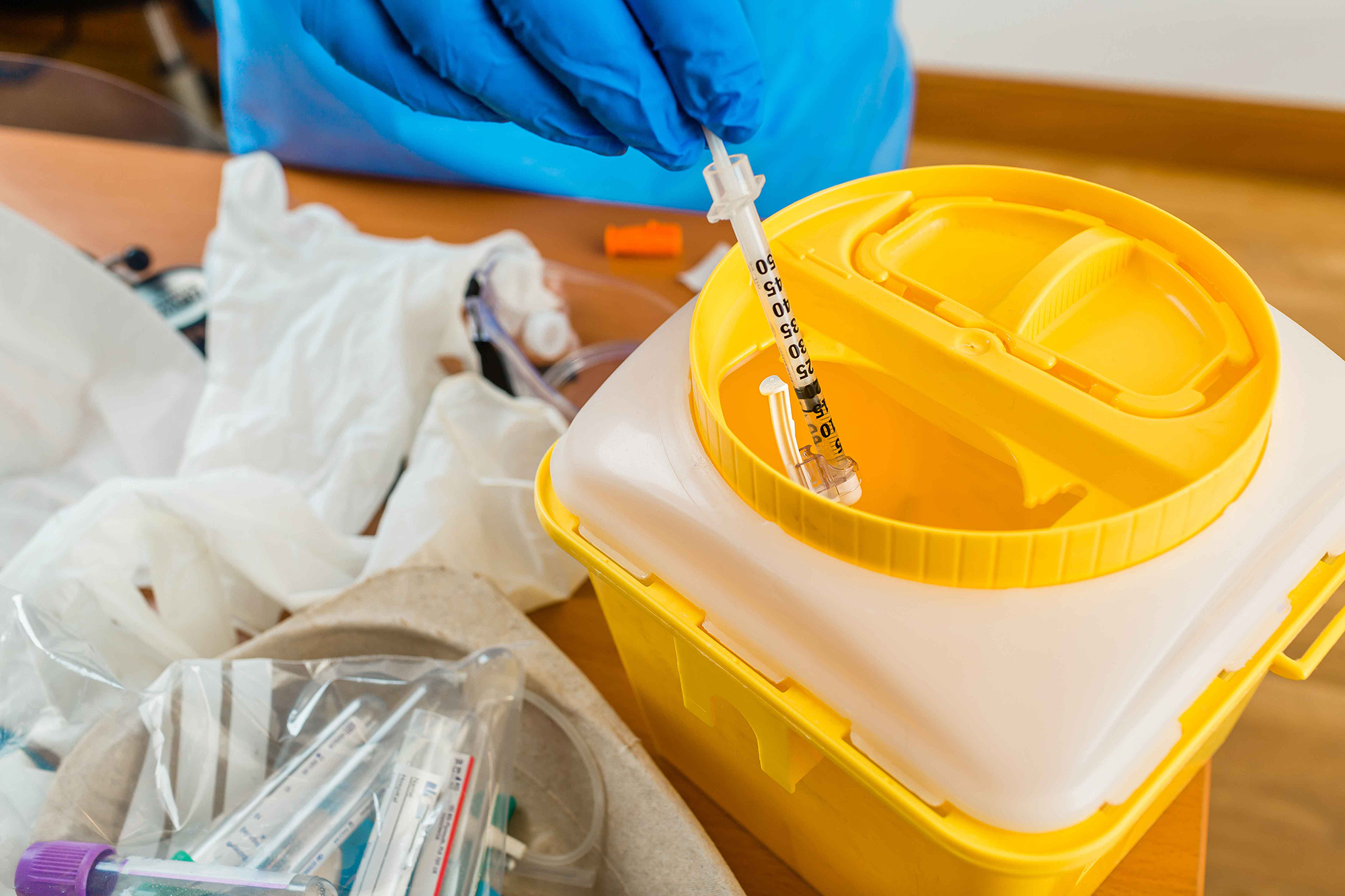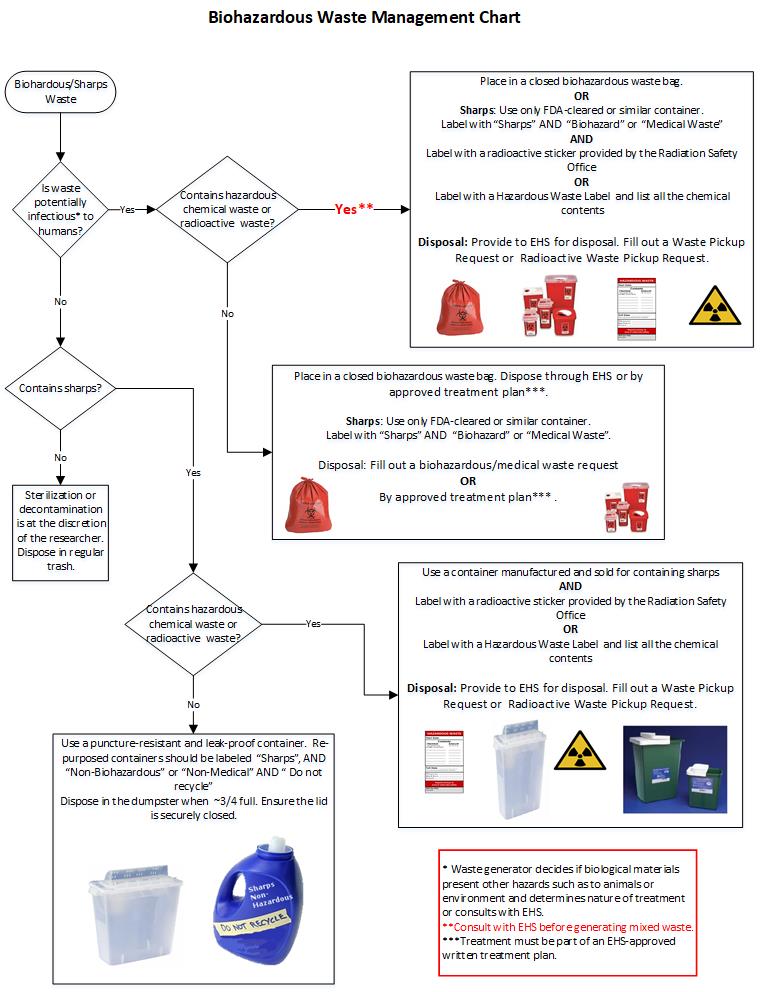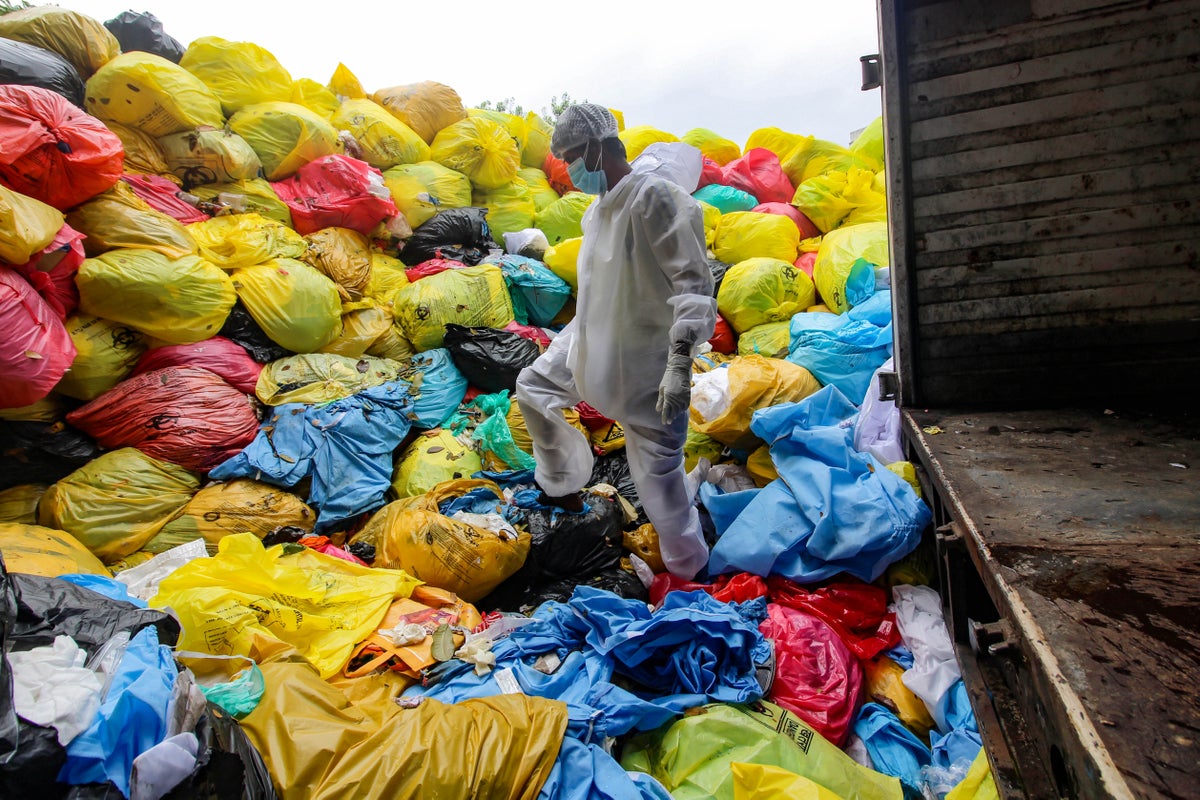Safe and Efficient Medical Waste Removal: Your Trusted Environmental Companion
Wiki Article
Ensuring Safe Handling and Disposal of Medical Waste
Guaranteeing secure handling and disposal of medical waste is of extremely important relevance in health care setups. Improper management of clinical waste can present considerable risks to the setting, public health and wellness, and health care workers. In this introduction, we will discover the relevance of correct clinical waste monitoring, the dangers connected with improper handling and disposal, as well as the standards and approaches that can be carried out to ensure its secure disposal.Value of Proper Clinical Waste Monitoring
Appropriate clinical waste administration is of utmost importance in making sure the security and well-being of health care professionals, individuals, and the public. Medical waste describes any waste created by health care facilities throughout the medical diagnosis, treatment, or booster shot of human beings or animals. This waste can position severe health dangers if not taken care of and thrown away effectively.
One of the primary reasons why correct clinical waste management is critical is to stop the spread of infectious illness. Clinical waste, such as made use of needles, infected dressings, and biological materials, can bring unsafe microorganisms. Otherwise taken care of and gotten rid of appropriately, these pathogens can be transferred to medical care employees, patients, waste handlers, and also the general public, resulting in the prospective break out of conditions.
Additionally, appropriate clinical waste administration aids shield the environment - medical waste disposal. Clinical waste consists of unsafe products, including chemicals, pharmaceuticals, and radioactive compounds. When not handled properly, these compounds can infect dirt, water bodies, and the air, presenting a considerable danger to ecological communities and public wellness
In addition, reliable clinical waste monitoring ensures conformity with neighborhood laws and worldwide requirements. Federal governments and regulatory bodies have actually established procedures and guidelines to guarantee the safe handling, storage space, transport, and disposal of medical waste. Sticking to these laws is vital to stay clear of legal consequences and maintain the reputation and reliability of healthcare centers.
Risks of Improper Handling and Disposal

If medical waste is not appropriately disposed of,Individuals can likewise be revealed to these infectious diseases. If contaminated needles or other sharps are not disposed of in marked puncture-proof containers, they might unintentionally prick individuals, leading to prospective infections. Additionally, if medical waste is not segregated correctly, there is a danger of cross-contamination between various sorts of waste, additional increasing the chances of disease transmission.
Improper disposal of clinical waste can likewise have harmful effects on the setting and the public. If medical waste is not treated and taken care of correctly, it can infect water resources, soil, and air, resulting in the spread of pollutants and diseases. This can have long-lasting consequences on ecosystems and public health and wellness.
Guidelines for Safe Handling of Medical Waste
Implementing efficient protocols for the secure handling of medical waste is essential in making sure the security of healthcare experts, patients, and the public. These guidelines are critical in lessening the risks connected with the handling and disposal of medical waste, such as infections, injuries, and ecological air pollution.Primarily, health care facilities need to develop a comprehensive waste monitoring plan that complies with neighborhood, national, and worldwide laws. This plan needs to include clear directions on waste partition, packaging, transportation, storage space, and labeling. It is essential to separate various sorts of waste, such as sharps, infectious materials, pharmaceuticals, and non-hazardous waste, to prevent cross-contamination and advertise secure disposal.
In addition, healthcare personnel must obtain complete training on correct waste handling strategies. They should be educated on the possible risks of medical waste, the proper usage of individual protective tools (PPE), and the correct procedures for dealing with, delivering, and getting rid of different sorts of waste.
Moreover, health care centers must regularly check and audit their waste management techniques to ensure conformity with guidelines. This consists of performing regular examinations, evaluating waste handling procedures, and supplying comments and training to personnel.
Effective Strategies for Waste Disposal
To guarantee the safe handling and disposal of clinical waste, it over at this website is vital to use effective techniques for waste disposal. Clinical waste can present considerable dangers to public wellness and the atmosphere if not taken care of and taken care of effectively. Consequently, medical care facilities and waste management companies should implement ideal approaches to mitigate these risks.It entails dividing different kinds of medical waste based on their features. Healthcare facilities must offer clear standards and training to staff members on exactly how to set apart waste correctly.

Additionally, healthcare centers must team up with licensed waste management companies to make certain proper disposal of medical waste. These companies have the know-how and tools called for to safely take care of and get rid of of clinical waste in compliance with regulations and finest practices.
Training and Education for Healthcare Professionals
Healthcare professionals play a vital function in making sure the secure handling and disposal of clinical waste with comprehensive training and education. It is important for doctor to have a deep understanding of the potential threats connected with medical waste and the proper methods for its monitoring. By getting appropriate training, healthcare specialists can lessen the prospective transmission of infectious conditions, stop environmental contamination, and shield both themselves and the public.
Furthermore, training programs need to highlight making use of personal protective tools (PPE) and proper hand health practices when taking care of clinical waste. medical waste removal service. Healthcare professionals must recognize how to properly make use of and get rid of of PPE to safeguard themselves from prospective direct exposure to hazardous materials. They ought to additionally be educated on the significance of regular handwashing and the appropriate use hand sanitizers to lessen the spread of transmittable diseases
Continuing education and normal updates on medical waste monitoring practices are vital for medical care professionals. As guidelines and guidelines evolve, it is vital to maintain medical care suppliers informed regarding any kind of adjustments in methods and best practices. This will ensure that they stay up-to-date and preserve a high criterion of safety in getting rid of and dealing with of clinical waste.
Conclusion
In conclusion, proper handling and disposal of medical waste is vital to make certain the safety and security of medical care specialists, people, and the environment. Neglecting to follow laws and standards can cause various threats and threats. Applying reliable methods for garbage disposal and giving proper training and education and learning for health care professionals are essential in maintaining a risk-free health care atmosphere. By adhering to these techniques, we can minimize the prospective dangers related to clinical waste.Medical waste refers to any kind of waste produced by healthcare centers during the diagnosis, treatment, or booster shot of humans or pets. If medical waste is not set apart correctly, there is a risk of cross-contamination in between various kinds of waste, more boosting the chances of illness transmission.
It is vital to separate various types of waste, such as sharps, transmittable materials, drugs, and non-hazardous waste, to prevent cross-contamination and promote safe disposal. WasteX Medical Waste Disposal.
To ensure the risk-free handling and disposal of clinical waste, it is important to utilize effective methods for waste disposal. In addition, healthcare facilities must develop a routine waste collection and transportation routine to protect against waste buildup and minimize the risk of mishaps or contamination.
Report this wiki page